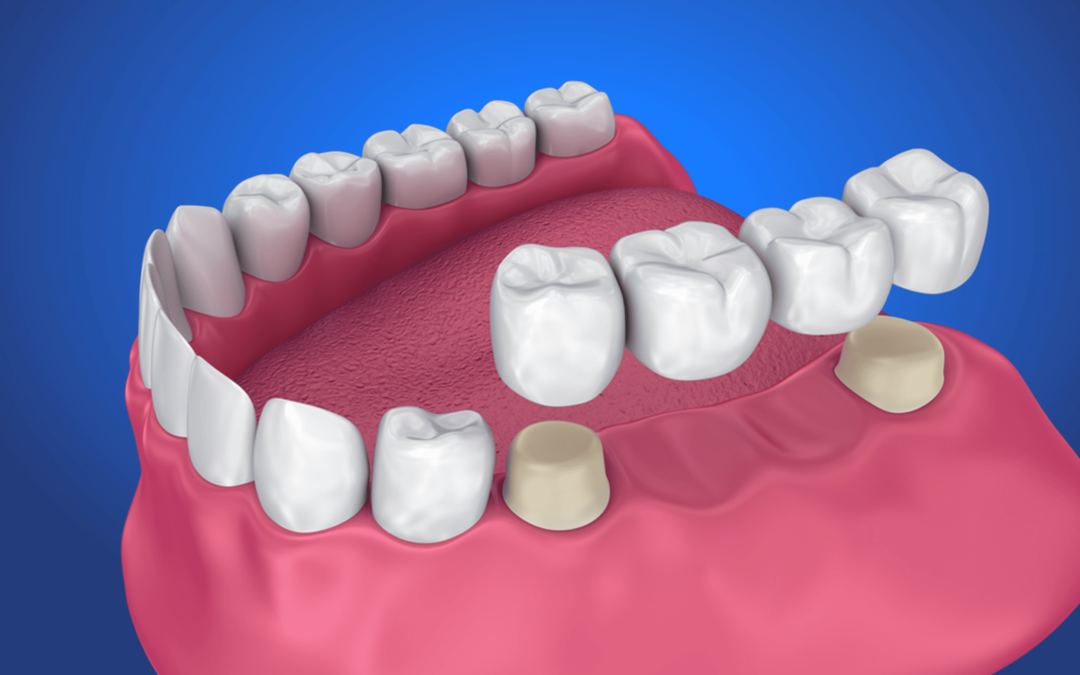Dental Bridges: Everything You Should Know
There are many ways dentists in Thunder Bay can restore a patient’s missing teeth. One of these ways is by providing patients with a dental bridge. Such a prosthetic consists of two crowns that hold an artificial tooth over the space in a patient’s smile. The crowns are placed on top of implants or adjacent teeth beside the gap. The bridges may be made of porcelain, gold, alloys, or other materials.
What Are the Advantages of Dental Bridges?
There are many benefits to this restorative treatment. The most common advantages include:
- They help patients eat and talk as they did before losing their teeth.
- Dental bridges will give patients an aesthetic, natural result.
- Replacing missing teeth will ensure your smile is aligned and your natural teeth do not shift position due to the empty space.
- Bridges will balance your smile and realign your bite pattern.
- They are easy to maintain and do not need to be removed to complete daily activities like eating, laughing, and talking.
What are the Disadvantages of Dental Bridges?
Although getting dental bridges in Thunder Bay is indeed an advantageous decision in many ways, as with any dental device, it also comes with its disadvantages and it’s good to be aware of those. These include:
- The teeth holding the dental crowns may need to be permanently modified to securely fit the crowns.
- If your teeth are not strong enough to hold the dental bridge, the treatment may not be as successful as it could. This may result in the bridge collapsing and needing to be partially or even completely replaced.
- Bridges will not support the patient’s jawbone, and the bone itself may begin losing density due to missing teeth.
Your dentist will ensure you know all dental bridges’ benefits and disadvantages before beginning your treatment. If they believe this procedure is not ideal for you, they will recommend an alternative course. If bridges are the right choice for you, they will inform you of the types you can choose from depending on your desired results and the unique parameters of your dental case.
Types of Bridges
Available dental bridges near you include:
Traditional
These are the most common types of bridges. They use crowns instead of adjacent teeth, with a pontic in between to securely hold the bridge. They will either be made of ceramic or porcelain fused to metal.
Cantilever
This bridge is commonly recommended for back teeth and is not as popular. It may put extensive force on the patient’s supporting teeth.
Maryland Bonded
This type of bridge is typically made from porcelain or plastic and is supported by a metal framework. This framework is attached to the back of a patient’s natural teeth and holds the new artificial tooth.
Dental Bridge Process
The dentist will first take impressions of your smile to correctly build dental crowns. The impressions will be sent to a lab, where the bridge will be designed.
While the patient is waiting for the final bridges, the dentist may give them a temporary structure. This way, they can continue their daily routine with a functional and enhanced smile. Once the bridge is ready, your dentist will replace the temporary structure with the permanent bridge.
Dental bridges do not require surgery, and the procedure should be painless. Your dentist may use local anesthesia if they believe it will help with discomfort. They may also provide additional sedation to help relax the patient during treatment.
Recovery Process
Once the bridge has been installed, you should not experience excessive pain. However, you there may be a bit of discomfort since your dentist will request you keep your mouth open for a long time during the procedure. Once the anesthesia wears off, you may fee slight pain, and your dentist may prescribe painkillers to help relieve it, but this will go away in a few hours.
The recovery for bridges is not lengthy, and you should expect to return to your routine after only a few days.
Dental Bridges at Current River Dental
Our dentists near you offer high-quality services to help restore your smile. If you are interested in restorative treatment, do not hesitate to contact us. Our friendly staff is here to help!

